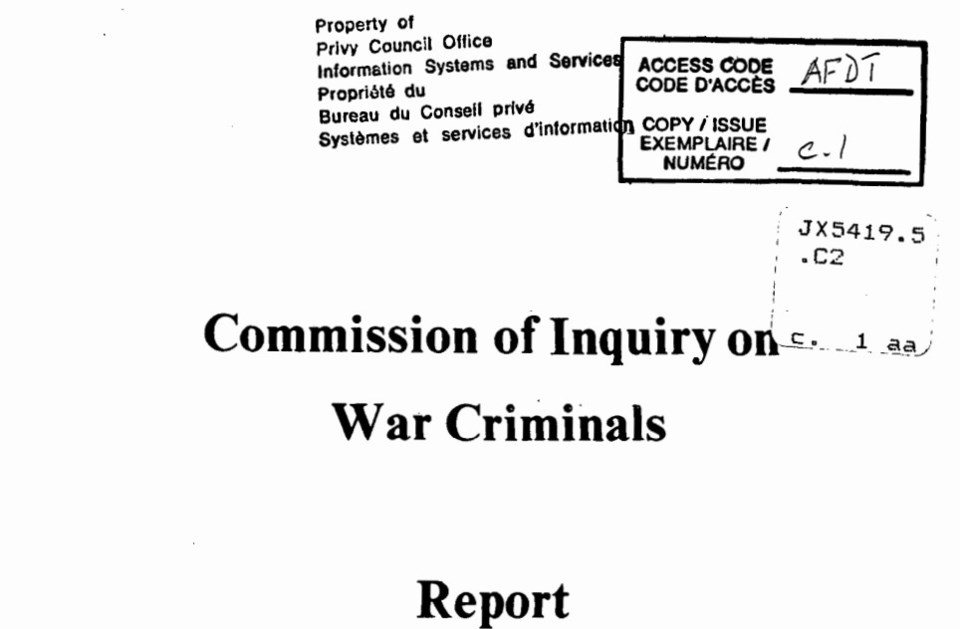Editor's note: The author writes in response to LETTER: Release of Inquiry on War Criminals files will prove controversial, posted on Sept. 15. David Matas is senior honorary counsel to B'nai Brith Canada. He represented the organization at the Commission of Inquiry on War Criminals.
To the editor:
Lubomyr Luciuk, in a letter to BayToday, argues against the release of a part of the 1986 Canadian Commission of Inquiry on War Criminals, the part which names individuals and recommends either for or against further investigations and proceedings. Luciuk gives examples, without names, of cases where the Commissioner has exonerated individuals.
Luciuk recommends against disclosure on the strange ground that many of the innocent exonerated are long dead and can not defend themselves. Yet, of course, those who are innocent and exonerated have nothing to defend themselves against. Whoever cares about the memory of these individuals should want their exoneration public.
Nineteenth-century British philosopher Jeremy Bentham wrote:
"Publicity is the very soul of justice. It is the keenest spur to exertion, and the surest of all guards against improbity. It keeps the judge himself, while trying, under trial. Under the auspices of publicity, the cause in the court of law, and the appeal to the court of public opinion, are going on at the same time. ... By publicity, the court of law, to which his judgement is appealed from, is secured against any want of evidence of his guilt. It is through publicity alone that justice becomes the mother of security. ... Without publicity, all other checks are fruitless: in comparison of publicity, all other checks are of small account."
Jeremy Bentham was right. Lubomyr Luciuk is wrong.
David Matas
Winnipeg



